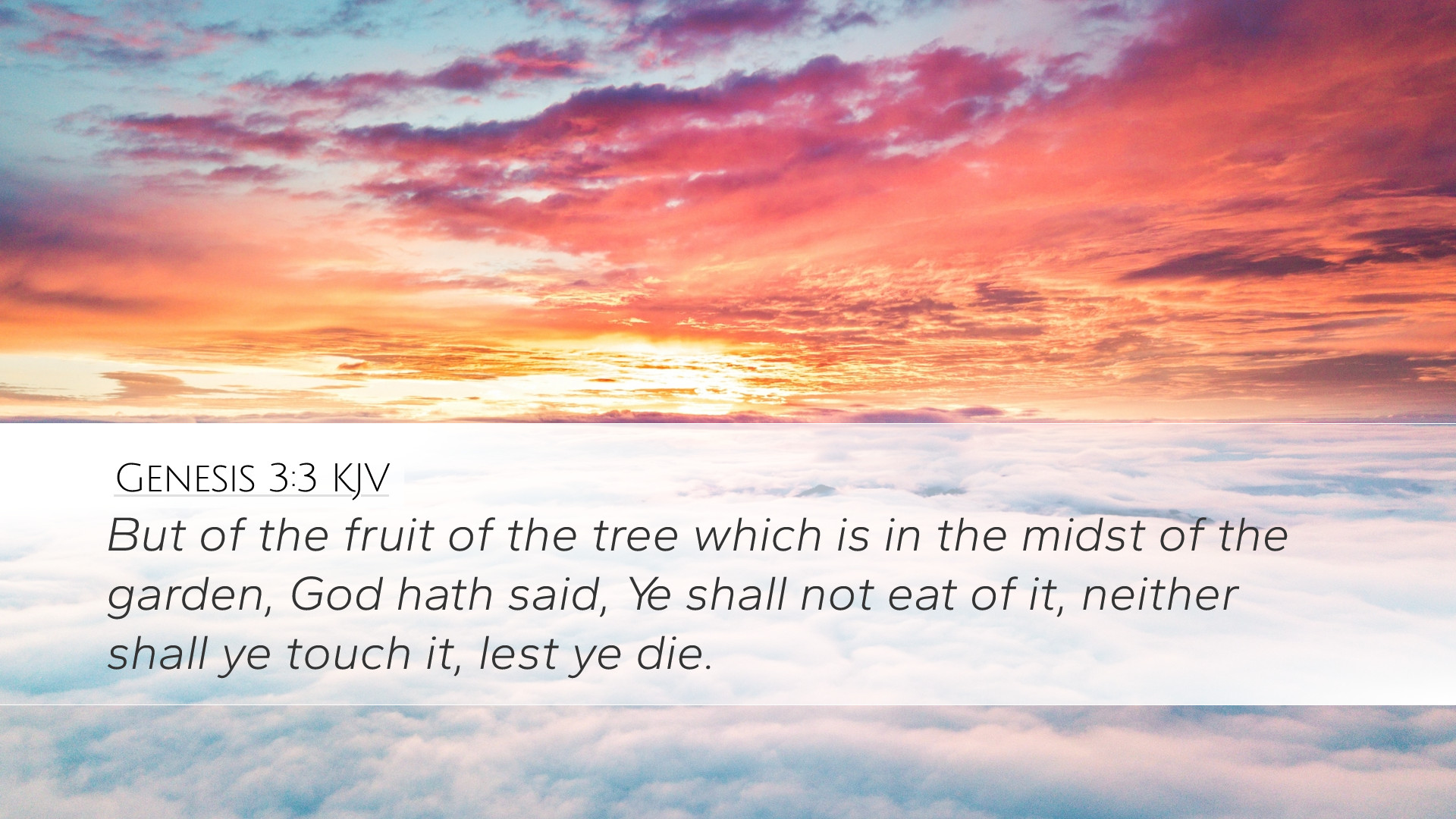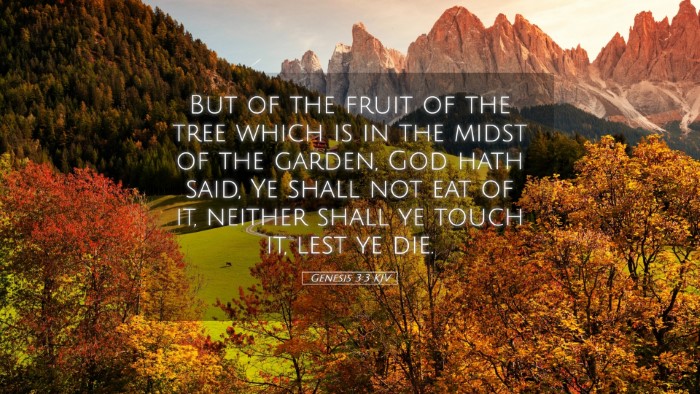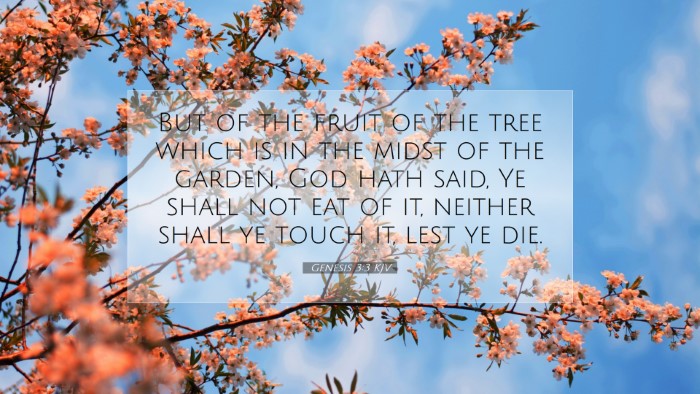Commentary on Genesis 3:3
Verse Text: "But of the fruit of the tree which is in the midst of the garden, God hath said, Ye shall not eat of it, neither shall ye touch it, lest ye die."
Introduction
This verse centers on the instruction given to Eve by God regarding the trees in the Garden of Eden, specifically concerning the tree of knowledge of good and evil. It reveals the importance of divine commandments and the consequences associated with disobedience. The commentary that follows draws insights from several esteemed theologians and biblical scholars.
Contextual Background
The significance of Genesis 3:3 lies within the larger narrative of the Fall of Man. The account emphasizes humanity's first act of disobedience, a pivotal moment that has theological implications regarding sin, temptation, and the human condition. Following is a synthesis of traditional commentaries that delve into the meaning and implications of this verse.
Matthew Henry’s Insight
Matthew Henry emphasizes the gravity of the command given by God. He notes that the directive was not merely a restriction but a part of God’s overarching purpose for humanity. Henry observes:
- The Placement of the Tree: The tree was placed in a strategic location, “in the midst of the garden,” highlighting its significance and the test of obedience.
- What God Said: Eve's response reflects the seriousness of divine commandments. God’s words carry an implicit warning, underscoring the concept of life and death associated with obedience and disobedience.
- Lest Ye Die: This phrase indicates that the consequence of acting against God’s command is not just physical death, but a spiritual separation from God, illustrating the heightened stakes of their choice.
Albert Barnes’ Commentary
Albert Barnes provides a detailed analysis of the implications of Eve's statement. He notes:
- Clarification of the Command: Eve’s recounting of God’s command shows an early awareness of the divine law and its limitations placed upon her. Barnes suggests that her words reflect both knowledge and misunderstanding about God’s intentions.
- Touch It Not: While God's original command did not include “touching” the tree, Eve adds this, which may indicate human tendencies to exaggerate divine restrictions or a misunderstanding of God’s overall purpose.
- Spiritual Awareness: Barnes emphasizes that Eve recognizes the implications of eating from the tree, indicating early spiritual insight into God's nature and the consequences of sin.
Adam Clarke’s Analysis
Adam Clarke offers a robust examination of the language and theology found in Genesis 3:3. His insights include:
- The Nature of Temptation: Clarke highlights how this command introduces the idea of temptation, which would ultimately lead to the Fall. The command serves as a boundary set by God for human protection.
- Human Curiosity vs. Divine Order: Clarke notes the tension between human curiosity (as seen in Eve's interest in the tree) and God’s established order. This highlights a fundamental conflict within humanity between obedience to divine authority and the pursuit of knowledge.
- Consequences of Disobedience: Clarke elaborates on the catastrophic consequences of ignoring God’s command, not only for Adam and Eve but for all of humanity, showcasing theological concepts of original sin and human depravity.
Theological Implications
The discussion around Genesis 3:3 invites deeper theological reflections:
- The Nature of God’s Command: This verse brings forth the idea that God's commands serve a protective purpose, intended to guide humanity towards life and away from death.
- Human Agency: The presence of free will in the garden context shows that the ability to choose carries significant responsibilities and potential consequences.
- The Mystery of Sin: The verse encapsulates the initial moment of temptation that leads to sin, suggesting its subtlety and the human tendency to justify disobedience.
Conclusion
Genesis 3:3 not only reflects a specific moment in the narrative of human history but also serves as a foundation for understanding sin and its ramifications in a broader theological context. The insights from Matthew Henry, Albert Barnes, and Adam Clarke illuminate the multifaceted themes embedded in this verse, offering valuable knowledge for pastors, students, theologians, and scholars alike. As they explore the depths of this passage, they are invited to reflect on the implications of divine commandments and the nature of human choices in their relationship with God.


